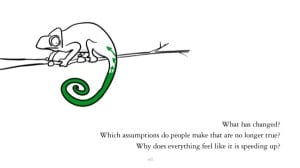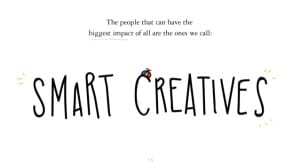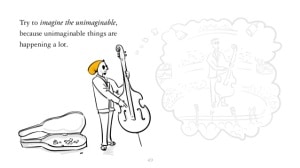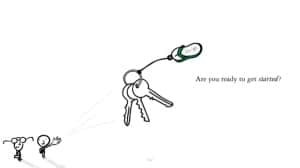Recently I was asked by the American Society of Human Genetics (ASHG) to provide my perspective on career and professional development in genetics (see here). At about the same time, I read the book “How Google Works”, by Google Executive Chairman and ex-CEO Eric Schmidt and former SVP of Products Jonathan Rosenberg. A very creative slide deck accompanies the book, which is definitely worth a few minutes of your time (here).
Both got me thinking about opportunities in the pharmaceutical industry for genetic graduate students. Here are a few thoughts based on the outline from the Google slide deck.
What is different now?
In human genetics, large-scale genotyping and sequencing is unlocking the inherited basis of most complex and rare traits in the ideal model organism, humans. This is very different than it was just a few years ago. But there is more: this is happening at a scale that will not likely stop until most humans on the planet have their genome sequenced. Like the “Internet of things”, there will soon be a “Genomes of things”, in which our genomes will be connected to all sorts of data – electronic health records, wearable technology, portable blood monitoring, etc.
Why is this relevant to drug discovery? First, there is a large unmet need for new therapies to prevent and treat a wide-variety of diseases. Second, the fundamental challenge in drug discovery is that we pick the wrong targets at the start of the drug discovery process. Third, increasingly there is an opportunity to use causal human biology to discovery new drug targets – to address the fundamental challenge in drug discovery. Fourth, human genetics represents one of the best opportunities to define causal human biology. And fifth, the field of human genetics is exploding in just the right way to address the issue of picking targets.
That is, the pharmaceutical industry is in need of human genetics. Moreover, the industry is in need of the type of skills the graduate students in human genetic possess.
What are those skills, exactly?
As with companies like Google, the pharmaceutical industry needs people with the trifecta of technical knowledge, business expertise and creativity. This is not an easy skill set to find, but if you possess these skills, there exists unlimited opportunities in the pharmaceutical industry.
But the pharmaceutical industry needs to evolve to recruit “smart creatives” away from the more traditional academic career path. Fortunately, the industry is indeed changing. First, researchers in academics and industry are working more closely together (see my perspective here). Both sides recognize the value that the other brings, and both sides are figuring out the right incentive structure to foster productive interactions. Second, the pharmaceutical industry is creating the right culture to attract smart creatives. In this new environment, the voices of smart creatives are being heard by pharmaceutical industry executives. That is – the opportunity is there for smart human geneticists to make a real difference (see here, here, here). And third, the industry is becoming more open than it has been in the past, which allows for a rewarding exchange of ideas between academics and industry, as well as across multiple disciplines within any one setting.
Ask yourself, what could be true in 5 years?
Think about where human genetics is headed. Ask yourself: where are you best positioned to realize the dream – your dream – of human genetics? Make a bet on your future, and make it a bold one. As stated by Schmidt & Rosenberg, “Remember that big bets can sometimes be easier to achieve than small ones…since they attract the best people.”
When placing career bets, I like to evoke the concept of Pasteur’s quadrant: I search for scientific research that seeks a fundamental understanding of scientific problems, and, at the same time, seeks to benefit society. Does this fit with your philosophy? If so, how do you think human genetics will have the biggest impact on society? Recently, I placed my personal bet on the pharmaceutical industry, but this is one of many valid positions.
What are the next steps?
A career in industry is not for everyone, to be sure. You need to love the application of human genetics, as your future opportunities in industry will take you far beyond human genetics. You need to be prepared for chaos, as industry moves rapidly in ways that may be outside of your control. You need to believe in the ecosystem, as your initial job (and company) may change quickly based on new opportunities. You need to believe in the transformative power of human genetics, as the path from genetic drug target to the clinic requires hundreds of steps (as poetically visualized here), many of which fall outside of conventional thinking in industry.
Should you choose a career path in industry, there will be many who are skeptical of your choice, as most of your mentors today reside within academics. But isn’t that exactly the type of risk-taking that will separate you from your peers?





